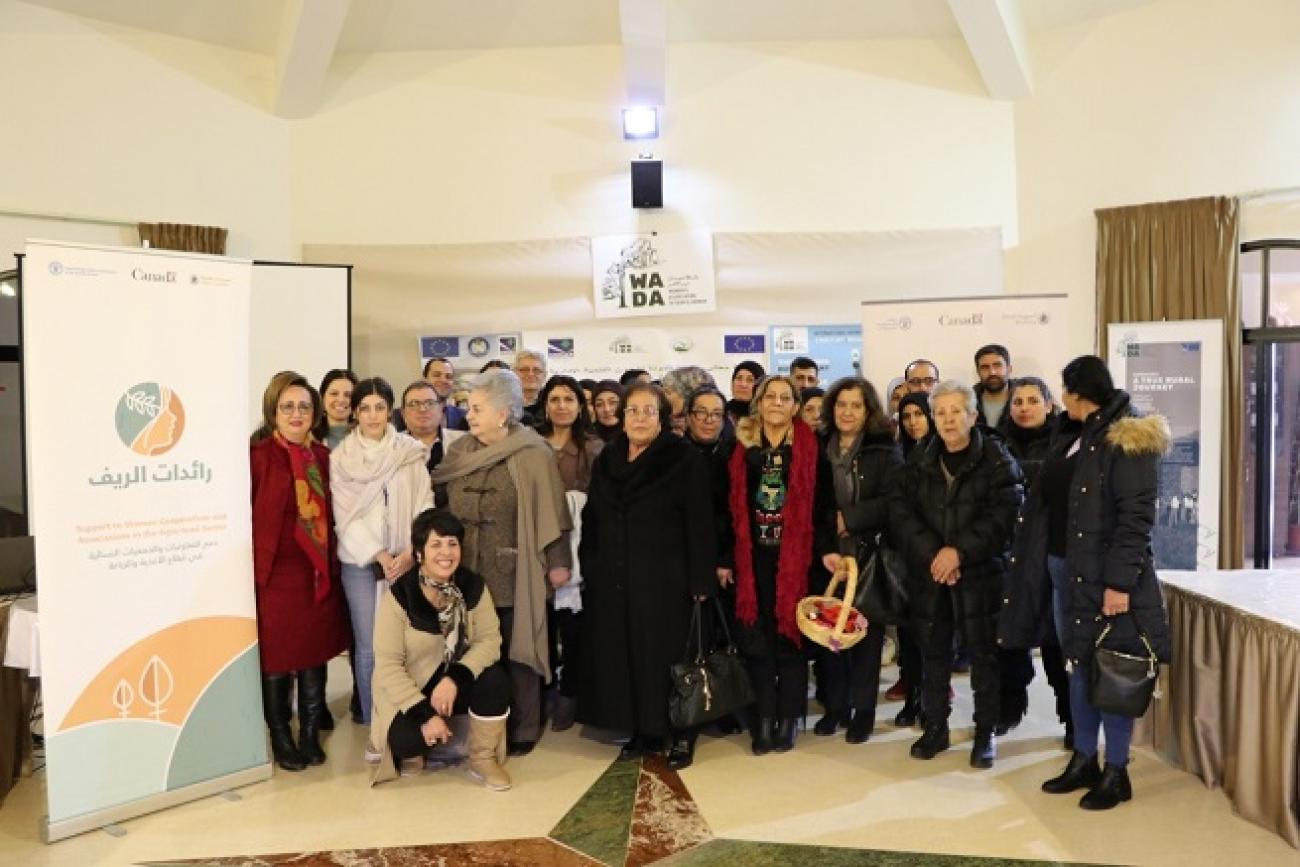“We are gathered here, for the first time, to hear your aspirations and expectations about your participation in the Canada-funded project "Support to Women's Cooperatives and Associations in the Agri-food Sector in Lebanon known as the “Raedat El Rif” project,” said Marie Louise Hayek, FAO Project Manager to twenty five members and representatives of various women cooperatives and groups.
They came from different locations in the Western-Baalbeck region to attend a meeting organized by the Food and Agriculture Organization of the United Nations in Lebanon (FAO) held at the Women's Association Center in Deir El Ahmar in the presence of the FAO Representative in Lebanon, Dr. Maurice Saade, and representatives from the Ministry of Agriculture, the Embassy of Canada in Lebanon and Global Affairs – Canada.
Each group of participants brought the flagship products of their artisanal food products such as jams, dried fruits, medicinal plants, etc. Some of these products were traditional, others more developed and innovative like watermelon syrup and chestnut jams…They enthusiastically exchanged recipes and tips before the discussion started.
Holding in her hand a jar of oil-less stuffed eggplant, Chadia Jamaleddine from Wadi El Safa in Baalbeck highlighted the importance of this meeting to express her ideas and share the achievements of the women group she is part of with FAO.
Funded by Canada, the project is implemented by FAO Lebanon in collaboration with the Lebanese Ministry of Agriculture. It aims to support women's cooperatives and associations by promoting a social and cultural environment that enables women’s economic empowerment while also increasing the opportunity for these cooperatives and associations to participate in local economies to establish or expand agri-food income-generating enterprises. The project is expected to complete its programmed activities by 2021, working closely with women's cooperatives and associations in all regions of Lebanon.
“Coordination, inclusiveness, and commitment from partners and beneficiaries are pivotal in this project,” according to Hayek.
In fact, two hundred and fifty (250) women's cooperatives/associations benefit from the sensitization of the communities on the rights and roles of women through gender equality awareness and gender-based violence campaigns. They also benefit from guidance towards profitable businesses through the gender assessment of the agri-food sector. Through FAO farm business schools, women in the cooperatives/associations are provided with training on topics relevant to them and to business management. They are further coached and supported by twenty-five (25) trained facilitators to develop productive and sustainable business plans.
“The business landscape is attracting more and more women in Lebanon” said Dalia Shehadeh, from Mazrait Beit Slaiby . “We want to work to sustain our families,” she added.
For Dounia El Khoury, Head of Women's Association of Deir El Ahmar (WADA), enhancing marketing opportunities and integration at both national and international levels is key in the FAO project she is taking part in.
Najwa El Hussein, from Shmestar , a chemistry graduate, carries out tests to control the quality of her organic products and offered to share her knowledge and quality control services with the participants at a later stage. From his side, Mohamad Fawaz working with Najwa stresses the importance of improving the members’ practical know-how and introducing new ideas and technology in the women cooperatives businesses.
The participants shared a warm meal prepared by the Womens’ Association of Deir Al Ahmar before heading back home with many ideas to explore within the framework of the “Raedat El Rif” project.









